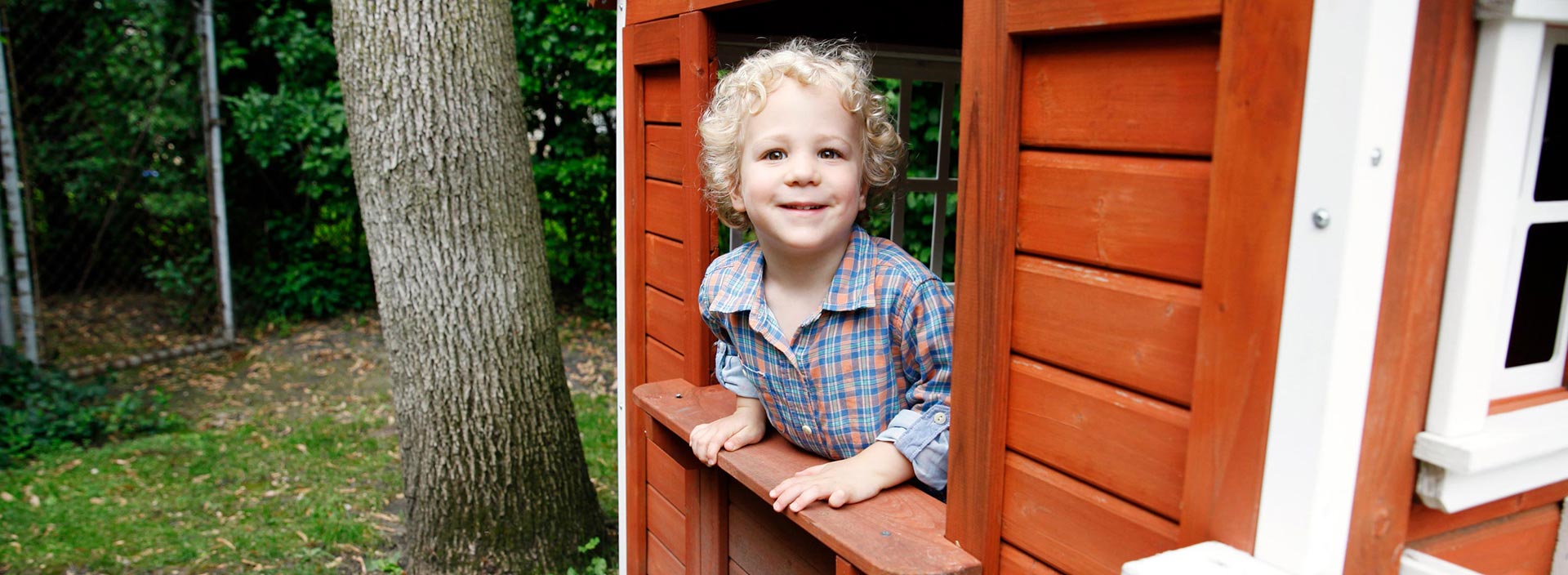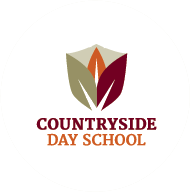
Understanding our approach to academics and curriculum
At Countryside Day School, we believe how you learn is as important as what you learn. We offer a different approach to learning and curriculum that goes beyond traditional academics. However, academic excellence is at the core of everything we do. We strive to help each student achieve his/her personal best while also cultivating the life skills and character traits they need to succeed outside of the school setting.
Where Learning Meets Life
Countryside Day School curriculum places an equal value on the development of character and the acquisition of academic knowledge.
Cultivating Character
We believe education can play a critical role in developing the character skills students need in their lives beyond their school years. Our aim is to develop students who have a sense of agency and empathy. This means they can think and do for themselves, take risks, solve their own problems, confidently navigate change and complexity, and overcome adversity. But they also deeply understand their place and the impact they have — and can have — on their families and communities. They lead with compassion and strive to make a difference in the world.
How?
We bring real world experiences into the classroom and give students responsibilities outside of traditional academics. By creating these micro-societies students learn how to be contentious citizens who are responsible and accountable for their contributions.
Here are some examples of real world experiences:
- They plan a cross country class trip making all reservations and travel arrangements
- They run micro-businesses and sell products they make in wood workshop.
- Older students offer after school enrichment classes for younger students and provide babysitting for all parent education events.
- They have weekly visits to elderly care facility.
- They ride bikes to the local library to borrow books for research.
- Students perform in a professional student opera. Older students are responsible for all backstage crew and set jobs.
- They make a community lunch from scratch twice weekly including menu planning, food ordering, executive and sous chefs, and food presentation


“All children have an innate desire to explore, communicate, work and strive for perfection. We support these ambitions in classrooms that allow children the freedom to experience real life situations with minimal interruption.”


Academic Excellence is at the core of everything we do
While our approach goes beyond traditional academics, we aim to help every student achieve his/her personal best in all academic areas. Our students’ test scores are competitive with local public schools and national scores. Most students go on to consistently achieve above average grades in high school as well.
How?
Our teachers follow a Montessori curriculum that includes traditional academic subjects and benchmarks including reading, math, science, writing, art, music, Spanish, history and technology. What is unique at Countryside is how students learn this content.
Curriculum at Countryside is delivered at the pace at which an individual student learns versus an arbitrary amount of time. This is known as proficiency-based learning, which means students are not moving on to more difficult material until they have mastered the foundational concepts. Students move on only when they understand. Also, students who move more rapidly through the material are not forced to wait for others to catch up.
There are no “front of the room lessons.” All lessons are taught in small groups based on individual student’s level. Teaching ratios vary from one-to-one to small groups of three to eight.
Learning is personalized and individualized per student. Teachers have students for three years and as a result they know their academic strengths and weaknesses and tailor their lessons and educational program to each student adding content in areas of weakness and allowing deeper study in areas of interest and strength.
We continually assess a student’s progress and performance in realtime and adjust course as needed. After new information has been introduced in small group lessons, teachers meet with students several days later to assess their understanding.
We deploy peer teaching and mentorships to develop leadership skills and help students achieve subject matter mastery.
Our students are held accountable and learn to understand the results and implications of their choices. For example, a student who does not complete an assignment on time will be then be instructed to complete the assignment immediately. Not completing assignments and homework is not accepted.
Curriculum FAQs
How does the curriculum compare to the public school curriculum? Who develops this curriculum and how?
All Countryside teachers have completed teacher training from the Association Montessori Internationale for the level of students they teach. This training offers a complete complement of content in the curriculum areas which are then taught in a manner that has been found to most effectively help students learn, including:
- Hands on materials
- Student choice throughout the day
- Short periods of direct instruction followed by collaborative and individual work
- Constructive creation of content rather than regurgitation, lessons that present questions and challenges rather than content and answers
- Comparatively minimal homework
Countryside is not trying to re-create public school curriculum. That is already available at the local public schools. That being said, faculty continuously review curriculum based on various areas of input including public curriculum, standardized testing, and internal assessments. Teachers always feel that they can continue to improve their teaching and revise curriculum content. This often results in teachers attending workshops and then revising curriculum or teaching approaches accordingly.
How will I know how my child is performing and if they are hitting age appropriate milestones (especially if there are no tests or grades)?
Countryside programs, our experienced teachers are cognizant of benchmarks for every developmental and grade level, and they are constantly assessing student learning in informal ways. Because work with students is always in small groups, teachers are immediately aware of students who are struggling to understand concepts and can respond promptly. Two 30-minute parent-teacher conferences are held per year in which your child’s academic achievement is discussed. At this time, teachers clearly articulate student performance in the context of age or grade level benchmarks. If students are not reaching these benchmarks, parents are made aware of the particular struggle and the interventions being implemented. Teachers also inform parents of areas of higher achievement. NWEA MAP Testing is administered twice yearly for students in 4th-8th grades. See our test scores.
My child needs discipline and cannot be expected to lead his own education. I don’t think this approach is right for him. How would you keep him on track?
All students have different levels of freedom to direct their own days. Teachers are not simply following the child. Students who do not demonstrate readiness to direct the course of their own days will receive more direction from the teacher including collaborating on work choices for the day, working near a teacher’s lesson table for more oversight, checking in after each work is completed, etc... However, the ultimate goal is helping students to internalize these executive function skills they will need for later success. Rich teacher-student relationships allow teachers to help students learn to hold themselves accountable, use their time wisely, contribute to their communities, and set high standards for themselves. Ultimately the goal is for every student to be growing each year in independence as s/he moves closer and closer to adulthood.
How do you prepare students for public high schools and traditional college programs that ARE lecture-based and require memorization and test-taking skills to be successful?
The truth is that students don’t need to be prepared for conventional education. Transitioning from conducting the course of their own days, managing mentoring responsibilities, caring for the environment and keeping up with class assignments to essentially following direction is not difficult for our students. They have high expectations for themselves; they value education and learning. With the emphasis placed on the three Rs: respect, responsibility and resourcefulness, our students are prepared to figure out how to make things work, whether this means learning in a new school environment, dealing with difficult people, advocating for themselves, taking initiative, or following a leader, our students have already had hours and hours of experience in all these areas. Read more about how students transition from Countryside to their subsequent schools.
How do Countryside Day School Alums perform in high school?
The overwhelming majority of our students transition into high school very successfully. Some feel a sense of loss of the community that CDS fosters, but that does not stop them from achieving and creating the community they desire in their next schools. One of our graduates stated it best:
“Countryside is definitely worth it. The transition wasn’t easy, but you get over it once you find your friends. Besides it’s good experience to have some sort of hardship transition in your life.”
Our students aren’t looking for easy. They are looking for challenge, engagement, and responsibility.
How do you ensure academic equivalency with the public schools?
Our faculty takes public school curriculum into account and incorporates subject and content areas when appropriate. But our goal is not to recreate the public school curriculum. We are not a “better public school.” We offer a qualitatively different educational experience in countless ways that are explained throughout the website and instantly evident when visiting CDS classrooms.
“Countryside Day School does not approach “curriculum” as conventionally defined. Academic learning and social emotional learning are notcompartmentalized, but rather intimately intertwined in classrooms that are living communities.”
Countryside Programs
We offer a continuous program from 16 months through 6th grade — inculding an all year program option for Pre-K/K and elementary school. LEARN MORE
TODDLER — Ages 16 mos.-3yrs
PRE-K/K — Ages 3-6
LOWER ELEMENTARY — Ages 6-9, Grades 1-3
UPPER ELEMENTARY — Ages 9-12, Grades 4-6
SUMMER PROGRAMS — Ages 16 mos.-12 yrs., Toddler-Grade 6
ALL YEAR FULL DAY — Ages 3-12, Grades Pre-K/K-Grade 6

